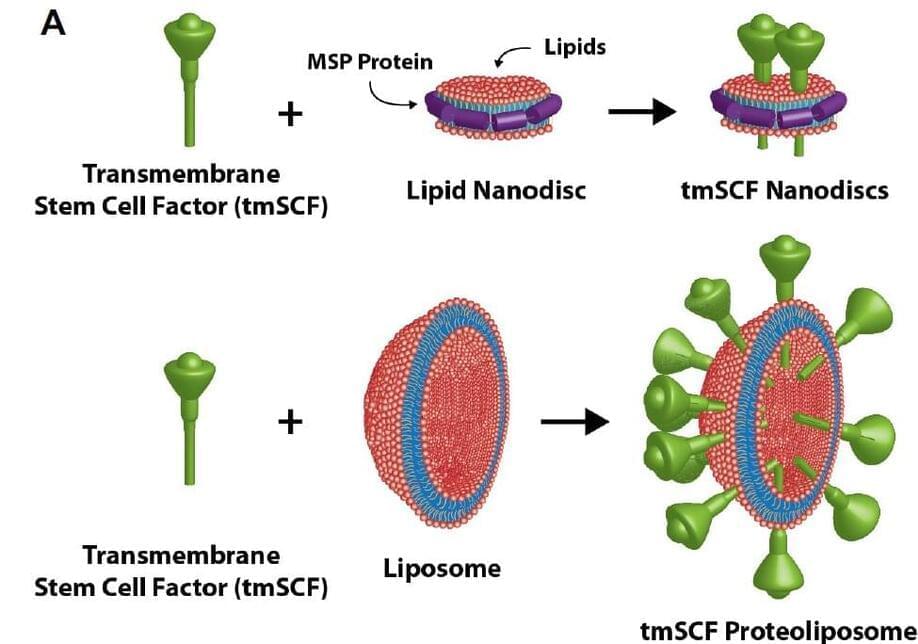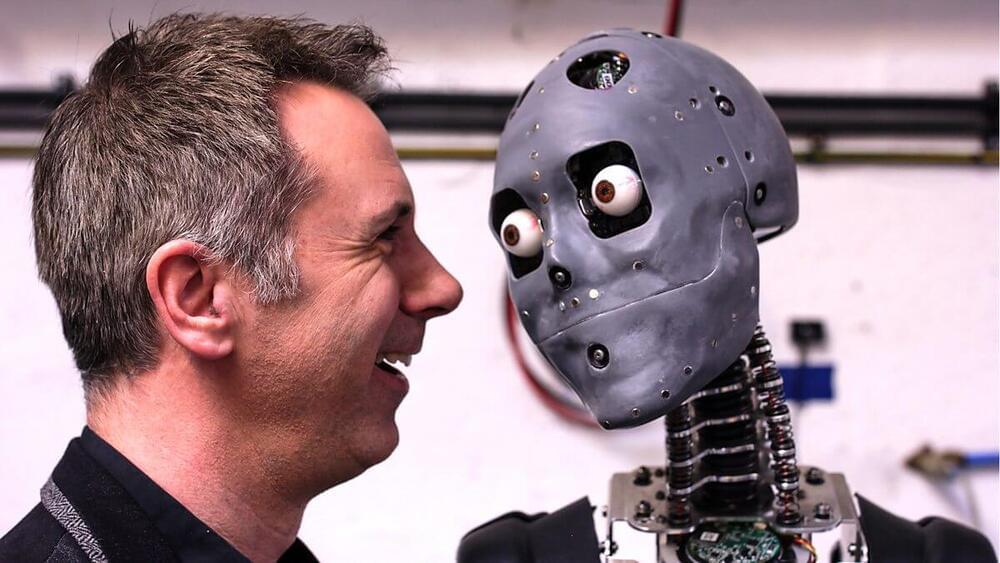Get the latest international news and world events from around the world.

Protein discovery reinvigorates promising new therapeutic
Several years ago, a promising therapeutic using stem cell factor (SCF) emerged that could potentially treat a variety of ailments, such as ischemia, heart attack, stroke and radiation exposure. However, during clinical trials, numerous patients suffered severe allergic reactions and development of SCF-based therapeutics stopped.
A research team led by engineers at The University of Texas at Austin has developed a related therapeutic that they say avoids these major allergic reactions while maintaining its therapeutic activity. The keys to the discovery, published recently in Nature Communications, were the use of a similar, membrane-bound version of SCF delivered in engineered lipid nanocarriers.
“We envision this as something you can inject where you have lack of blood flow and it could induce blood vessels to grow in that area,” said Aaron Baker, a professor in the Cockrell School of Engineering’s Department of Biomedical Engineering, and one of the leaders on the project.

Tiny meteoroid bops $10 billion Webb space telescope
WASHINGTON, June 8 (Reuters) — A tiny meteoroid struck the newly deployed James Webb Space Telescope in May, knocking one of its gold-plated mirrors out of alignment but not changing the orbiting observatory’s schedule to become fully operational shortly, NASA said on Wednesday.
The little space rock hit the $10 billion telescope sometime in late May and left a small but noticeable effect in the telescope’s data, NASA said in a statement, adding that it was the fifth and largest hit to the telescope since its December launch. read more
“After initial assessments, the team found the telescope is still performing at a level that exceeds all mission requirements,” NASA said. “Thorough analysis and measurements are ongoing.”

“Firehose” of raw data: Twitter agrees to provide complete ‘Fake Accounts’ data to Elon Musk
According to multiple news reports, Twitter plans to give Elon Musk access to its “firehose” of raw data on hundreds of millions of daily tweets in an effort to speed up the Tesla billionaire’s $44 billion acquisition of the social media platform. The data-sharing agreement was not confirmed by the lawyers involved in the deal. Musk was silent on Twitter, despite having previously expressed his displeasure with various aspects of the deal.
Twitter declined to comment on the reports, pointing to a statement released on Monday in which the company stated that it is continuing to “cooperate” and share information with Musk, who in April entered into a legally binding agreement to purchase Twitter, claims that the transaction cannot go forward until the firm discloses more information on the frequency of bogus accounts on its network. He claims, without providing evidence, that Twitter has grossly underestimated the number of “spam bots” on its platform, which are automated accounts that typically promote scams and misinformation.
On Monday, the Attorney General of the State of Texas, Ken Paxton, said that his office will be investigating “possible false reporting” of bot activity on Twitter as part of an inquiry against Twitter for allegedly failing to disclose the scale of its spam bot and fake account activity. According to a source familiar with the situation, Twitter’s plan to give Musk full access to the firehose was first reported by the Washington Post. According to other reports, the billionaire may only have limited access.

Humans learn from artificial intelligence systems — and pass those skills on to others, shaping culture
A study, which was published on [May 30] by a group of researchers at the Max Planck Institute for Human Development’s Center for Human and Machines, shows that humans can learn new things from artificial intelligence systems and then pass those skills on to others in ways that could have a cultural impact.


Inara’s Trans Surgery Fund
In celebration of Pride Month, Inara, one of our moderators, is fundraising to pay for her transition surgery. I donated.
Gender dysphoria is the term used to describe a sense of discomfort or distress that a person may experience because of a mismatch between their gender identity and their sex assigned at birth. Methods of relieving gender dysphoria include transitioning socially (pronoun usage, name change, etc.) and physically (surgery).
I have medical insurance but it does not cover trans healthcare. Yes, we are still fighting for trans rights! I need allies willing to take action on my behalf.

Artificial Intelligence Is Now Producing Cloned Pigs
In this bold new future, we have discovered the best possible use for artificial intelligence: making more pigs.

Researchers Discover How Nearly Everybody Can Increase Their Lifespan
Osaka University researchers discovered that adjusting lifestyle behaviors can have a significant impact on lifespan, even in those with chronic health issues.
Ever since the beginning of civilization, humans have wanted to live longer. Whether it be the Fountain of Youth, Gilgamesh’s secret plant of immortality, or the elixir of life, the idea of immortality is incredibly prevalent in humanity’s oldest and most well-known stories.
Unfortunately, immortality is only a myth. The average lifespan in the United States is nearly 79 years and it is unlikely to increase dramatically in the next few years. Still, scientists have been researching how to increase our longevity and have found promising results.